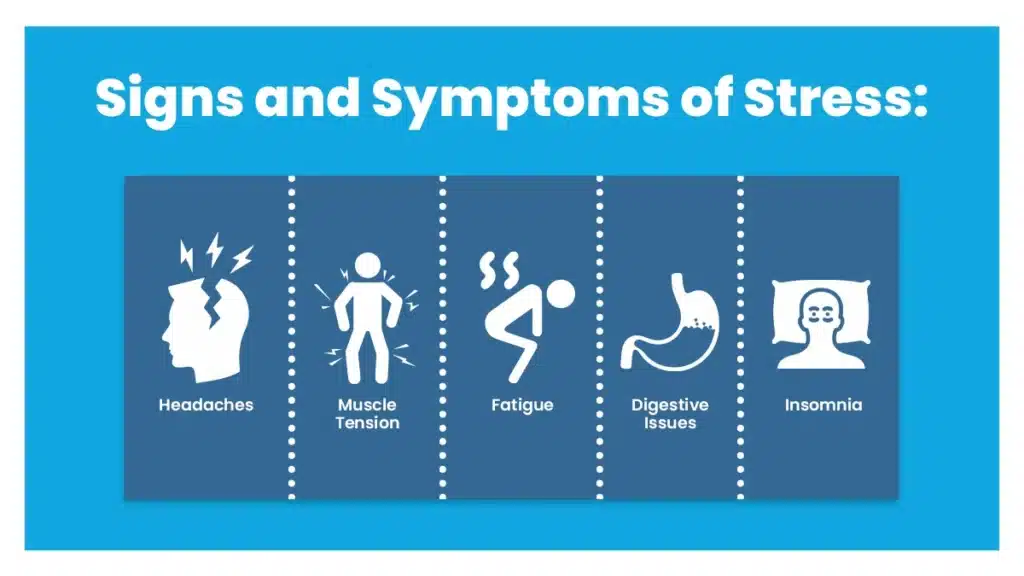Feeling overwhelmed or burned out can result from life’s daily stressors and hustle. Stress is an unavoidable part of our lives that can impact our mental and physical well-being. However, finding effective ways to manage and alleviate stress is important to maintaining a healthy balance.
De-stressing techniques vary widely, and implementing personalized strategies can significantly reduce stress levels and promote a sense of calm, resilience, and overall well-being. This guide explores various methods to de-stress and regain inner peace effectively.
Key Takeaways
Stress has become a leading cause of developing mental illnesses. Here is what the article covers:
- Stress is a natural response to fear, but excessive stress can harm physical and mental health.
- Identifying physical and emotional symptoms is crucial for effective stress management.
- Adopting varied physical and psychological techniques helps manage stress effectively.
The Haven Detox-South Florida offers comprehensive mental health services in a tranquil and supportive environment. Contact us at (561) 3288627 for further support.

Stress And Its Impact
Stress is a reaction our bodies have when facing challenges or feeling overwhelmed. It’s like our body’s alarm system kicking in, preparing us to deal with difficult situations. However, too much stress can be harmful and affect both our physical and mental health.
Impact Of Stress On Mind And Body
Stress can have severe effects on both your mind and body. Mentally, it can lead to feelings of anxiety, sadness, and difficulty concentrating. Physically, stress can cause headaches, muscle tension, and stomach problems. Long-term stress can weaken the immune system, making you more susceptible to illness.
Finding healthy ways to manage stress, like exercise, deep breathing, or talking to someone you trust, is essential. Taking care of your mental health is as important as your physical health, so it’s vital to prioritize relaxation and self-care activities to combat the adverse effects of stress.
Signs And Symptoms Of Stress
Stress presents itself in various ways, impacting both the body and mind. Identifying the signs and symptoms is paramount for effectively managing and preventing its detrimental effects.
Physical Symptoms Of Stress
When stress takes hold, it often manifests physically, signaling something isn’t quite right. These physical symptoms can range from mild discomfort to severe pain, affecting our daily lives and overall well-being.
Headaches: Stress can trigger tension headaches or migraines due to muscle tension and increased blood pressure.
Muscle Tension: Stress can cause tightness and muscle tension, leading to discomfort or pain, particularly in the neck, shoulders, and back.
Fatigue: Chronic stress can result in persistent fatigue, making it challenging to maintain focus or perform daily tasks.
Digestive Issues: Stress may manifest as stomach aches, nausea, diarrhea, or constipation due to changes in digestion caused by the body’s stress response.
Insomnia or Sleep Problems: Stress can disturb sleep patterns, leading to difficulty falling asleep, staying asleep, or experiencing restful sleep.
Increased Heart Rate: Stress can elevate heart rate and blood pressure, potentially leading to palpitations or cardiovascular issues.
Weakened Immune System: Prolonged stress can suppress the immune system, increasing vulnerability to infections and illnesses.
Respiratory Issues: Stress may exacerbate respiratory conditions such as asthma or lead to shallow breathing and feelings of breathlessness.
Attention to these physical signals can help identify stress factors and take proactive steps to address them. It also promotes better physical health and overall resilience.
Emotional Symptoms Of Stress
Beyond its physical toll, stress can profoundly affect our emotional state, altering our mood and behavior. Learning these emotional symptoms is essential for managing stress effectively.
Anxiety: Stress can trigger feelings of fear or nervousness, often accompanied by physical symptoms such as sweating, trembling, or rapid heartbeat.
Depression: Chronic stress can contribute to feelings of sadness, hopelessness, or emptiness, potentially leading to depression if left unaddressed.
Irritability: Stress may result in irritability, mood swings, or a short temper, affecting relationships and interactions.
Difficulty Concentrating: Stress can impair concentration, memory, and cognitive function, making it hard to focus on tasks or make decisions.
Changes in Appetite: Stress may cause changes in appetite, leading to overeating or undereating, which can further impact mood and energy levels.
Social Withdrawal: Stress can prompt withdrawal from social activities or relationships, as individuals may feel overwhelmed or lacking energy.
Feelings of Overwhelm: Stress may result in feeling overwhelmed, unable to cope, or feeling out of control, leading to increased stress levels.
Low Self-esteem: Chronic stress can undermine self-esteem and self-worth, contributing to negative self-perception and self-criticism.
By acknowledging and addressing emotional symptoms, individuals can cultivate healthier coping mechanisms and build resilience against stress.
Why Is It Important To De-stress?
De-stressing is important for maintaining overall well-being and optimal functioning in various aspects of life. Here are several reasons why it’s important:
Long-Term Effects Of Stress
Stress can affect our health over time When it becomes a regular part of life. Chronic stress is linked to an increased risk of developing conditions such as depression, high blood pressure, and a weakened immune system. Additionally, prolonged stress can accelerate aging and increase the likelihood of developing chronic diseases.
Benefits Of De-stressing
Taking the time to de-stress can positively impact our physical and mental health. It helps reduce blood pressure and muscle tension and improve sleep quality. De-stressing activities like meditation, exercise, or spending time in nature also promote the release of endorphins, chemicals that boost mood and decrease feelings of pain.
Techniques To De-stress
Various techniques to de-stress and different methods work for other people. Here are some widely practiced techniques:
Physical Techniques
When stress piles up, physical activities can offer a welcome relief. Engage in exercises like walking, running, or dancing to release built-up tension. These activities trigger the body’s natural mood lifters. Deep breathing exercises can soothe the nervous system, promoting relaxation. Even simple stretches can help loosen tight muscles, easing physical stress.
Exercising is about more than just staying fit. It’s a powerful tool for stress management. Whether it’s a brisk walk in the park or a session at the gym, physical activity significantly decreases the levels of stress hormones while increasing endorphins, the body’s feel-good chemicals. Regular exercise also improves sleep quality, which further combats stress.
A good night’s sleep is essential for managing stress effectively. During sleep, the body repairs and rejuvenates itself, reducing the impact of stress on both the body and mind. Adequate sleep helps regulate mood, improves concentration, and boosts resilience against stressors. Develop an organized bedtime routine to promote better sleep and avoid caffeine and screens before bed.
Psychological Techniques
Psychological techniques encompass strategies to improve mental well-being and manage various psychological challenges. Some common ones focus on mindfulness, meditation, deep breathing, and relaxation techniques.
Mindfulness involves paying full attention to the present moment without judgment. It helps reduce stress by focusing on sensations, thoughts, and emotions as they arise. Meditation, a practice often linked with mindfulness, trains the mind to achieve a state of calm and clarity. With meditation, individuals can improve their mental well-being, concentration, and emotional regulation.
Deep breathing involves taking slow, deep breaths to activate the body’s relaxation response. Other relaxation tools, such as progressive muscle relaxation and guided imagery, can also help manage stress and promote a sense of calm. These methods work by lowering heart rate, reducing muscle tension, and calming the mind.
Dietary Techniques
Maintaining a balanced diet rich in fruits, vegetables, lean proteins, and whole grains is critical to supporting overall well-being. Incorporating colorful foods, i.e., fruits and vegetables, ensures a variety of essential nutrients, while portion control helps regulate energy levels. Adopting healthier cooking methods, such as grilling or steaming instead of frying, can enhance nutritional value.
Healthy eating plays a significant role in managing stress levels. Nutrient-dense foods provide the body with the necessary fuel to cope with daily challenges effectively. Consuming foods rich in omega-3 fatty acids, like salmon and walnuts, can help reduce inflammation and alleviate stress. Furthermore, consuming complex carbohydrates like whole grains aids in stabilizing blood sugar levels, promoting a more balanced mood.
Staying hydrated is essential for mitigating stress. Dehydration can exacerbate feelings of fatigue and tension, affecting overall cognitive function. Drinking adequate water throughout the day regulates bodily functions and maintains optimal hydration. Herbal teas and infused water are refreshing alternatives to sugary beverages, promoting hydration without added calories.
Activities To Help De-stress
De-stressing activities are significant for maintaining mental and emotional health. Adding these activities into your routine can help you manage stress and maintain overall well-being.
Engaging In Hobbies
Finding joy in hobbies can be a great way to unwind from stressful situations. Whether painting, playing a musical instrument, or gardening, hobbies offer a chance to focus on something you love. You can involve family members or friends in your hobbies, making them even more enjoyable. Spending time on hobbies also helps balance the pressures of school and home.
Socializing And Other Leisure Activities
Spending time with family members and friends is a surefire way to relieve stress. It can be going for a walk together, playing games at home, or simply chatting over a meal; socializing brings joy and comfort. Engaging in leisure activities like watching movies or reading books with loved ones also provides connection and relaxation. So, make time in your to-do list for these precious moments.
Role Of Professional Help In De-stressing
Seeking professional help can be vital during tough times. Therapists offer guidance and support to cope with stress, providing ways to manage overwhelming feelings. From yoga sessions to positive self-talk techniques, they equip individuals with tools to reduce cortisol levels and boost feel-good endorphins.
Knowing when to seek professional help is necessary. If stress starts interfering with daily life, it’s time to consult a therapist or psychiatrist. Persistent feelings of anxiety or sadness, difficulty concentrating, or trouble sleeping may indicate the need for professional support.
Various types of therapy offer valuable tools to combat stress. Cognitive behavioral therapy (CBT) helps individuals challenge negative thought patterns through practical exercises. Support groups provide a sense of community and social support, aiding in managing health problems.
Dialectical behavior therapy (DBT) combines cognitive techniques with mindfulness practices to regulate emotions effectively. Family therapy involves loved ones in the healing process, improving relationships and communication. At the same time, group exercise classes offer social support and mood-boosting benefits.
Frequently Asked Questions (FAQ)
How do you relieve stress immediately?
Try deep breathing exercises, progressive muscle relaxation, or a quick walk to relieve stress immediately. Engaging in a hobby, listening to music, or practicing mindfulness are also effective. Professional help is essential for managing chronic stress or mental health problems.
How do we reduce mental stress?
Reduce mental stress with a healthy diet, incorporating fruits, vegetables, and whole grains. Engage in simple things like deep breathing or taking short breaks. Visualization techniques can calm the mind. Plan self-care activities regularly, even if just for a few minutes daily. These are the best ways to manage mental stress in the long run.
How do I stop feeling so stressed?
Incorporate stress-relieving activities into your daily routine. Exercise and relaxation techniques can reduce high levels of stress. Prioritize aspects of your health like sleep and nutrition, as positive thinking and mindfulness lower stress hormone levels. Remember, laughter is a great stress reliever.
The Haven Detox-South Florida
Mental health challenges can cast a shadow over life’s brightest moments. At The Haven Detox-South Florida, we’re dedicated to illuminating the path to recovery.
Our dedicated team provides compassionate mental health treatment, guiding you toward holistic healing and renewed vitality. Immerse yourself in a supportive residential environment conducive to recovery, with 24/7 care ensuring safety and stability. Our medical staff employs evidence-based therapies tailored to your needs, fostering profound psychological growth.Reclaim your life with us. Contact us at (561) 328-8627 to tackle your journey towards wellness today.






